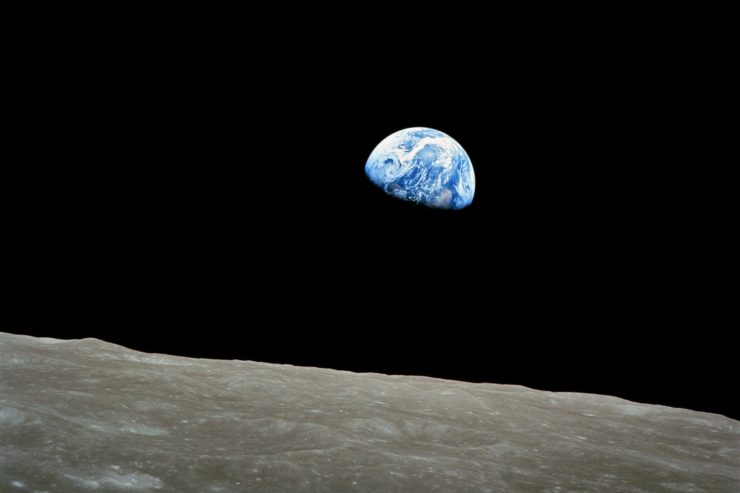More often than not, authors make the imagined compatible with the real. The world around us continues to exist while we read, even if we believe everything the author tells us. In A History of What Comes Next, the Kibsu insert themselves into history in their bid to take us to the stars, but the resulting timeline is the one we know. There are few, if any, verifiable facts that would contradict the storyline and, conversely, nothing in our present would change if it all happened to be true. There are those, however, who aren’t so kind to our reality, authors whose stories mess with past events and take a wrecking ball to our timeline.
The most inspiring and tragic events in history make good candidates for alternate or secret histories and both are often intertwined. The space race and the Second World War, for example, are inexorably linked, and alternate or secret histories of one will often involve the other. It is, of course, almost impossible to talk about alternate histories of World War II without mentioning The Man in the High Castle by Philip K. Dick. Since it will be on just about every list of this sort, I chose not to include it.
Without further ado, here are some of my favorite reimaginings of the War and the Space Race that followed.
The Calculating Stars by Mary Robinette Kowal
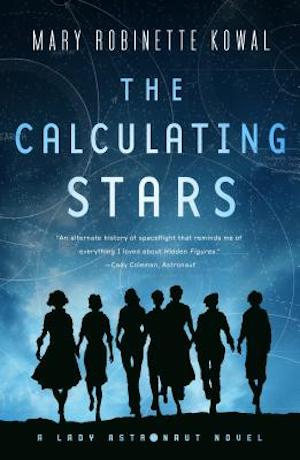
So much for avoiding the obvious. The Calculating Stars is an instant classic and absolutely everyone should read it. A meteorite hits Earth in 1952 and the resulting global warming menaces all life on the planet. While an international coalition speeds up the space program in the hopes of saving humanity, an incredibly smart human computer persists in her attempts at joining a mission to the moon despite rampant sexism. Mary Robinette Kowal captures the spirit of the era with finesse and the main character is an absolute gem. It’s no surprise the book won the Hugo, the Nebula and the Locus Awards. If you know anything about the history of women pilots, the Ninety-Nines, or the First Lady Astronaut Trainees (aka Mercury Thirteen), you’ll absolutely love this, and if not, this is a wonderful introduction to the subject. Bonus: It’s the first of the Lady Astronaut series. Two more novels: The Fated Sky and The Relentless Moon are available now. There are also two novelettes in the same universe.
The Oppenheimer Alternative by Robert J. Sawyer
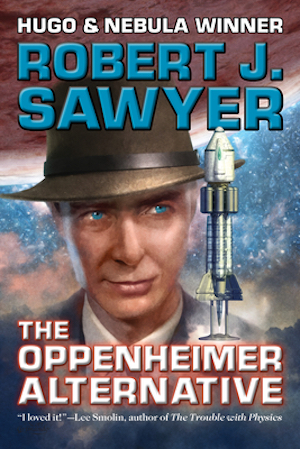
All life on Earth is a few decades away from being scorched into oblivion (of course it is) and the world’s greatest minds band together to stop it. You know many of them. There’s the titular J. Robert Oppenheimer, obviously, but also Albert Enstein, Leo Szilard, Niels Bohr, Edward Teller, Wernher von Braun, Richard Feynman, Arthur Compton, Enrico Fermi, etc., etc. Every single character in this book is a real person. That’s right, all of them. Even some of the dialogue is real. This is one of the most ambitious books I’ve come across. I can’t imagine the amount of research that went into giving each character a believable voice and personality (actually, I can, the bibliography runs 30 pages on my phone), but this is Robert J. Sawyer so maybe I shouldn’t be surprised. In some ways, it reminded me of the play Copenhagen by Michael Frayn, with more thrills, cool rockets and a doomsday scenario to boot.
Farthing by Jo Walton
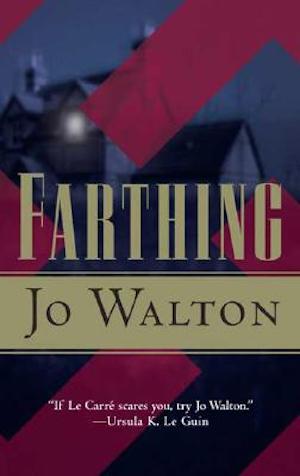
This is, on appearance, a typical murder mystery set in 1949’s England, but this is not our England. This one sold its soul to put an end to the hostilities with Hitler. It’s an England rotting at its core where antisemitism runs free. When a politician turns up dead at the famous Farthing estate, the prime suspect is naturally the Jewish husband of the main protagonist, which may be the reason he was invited in the first place. It’s up to inspector Carmichael from Scotland Yard to solve the mystery. The book is a brilliant take on fascism and a great whodunnit. It’s quite dark, as you might have guessed, but the alt-history part is introduced rather subtly. Farthing, the house, feels like a creepy Downton Abbey/Knives Out mansion and the characters are wonderful. Though the story takes place more than seventy years ago, the subject matter, and the plot, are disturbingly apropos. Farthing was nominated for the Nebula and the Campbell Memorial Award. Bonus: This is the first of a trilogy. The other two novels, Ha’penny and Half a Crown, are both out.
United States of Japan by Peter Tieryas
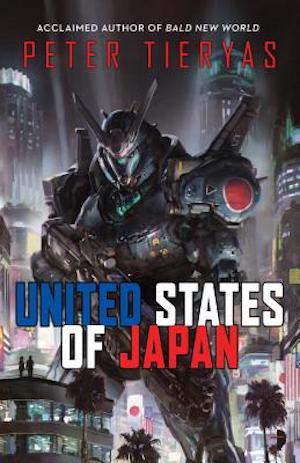
OK, so I didn’t put The Man in the High Castle on the list but this one is heavily inspired by it. You can guess from the title who won the War. The story follows a video game censor and an Imperial Government agent who investigates a subversive game showing a world where the Allies were victorious. It’s an engaging reflection on oppression, patriotism and nationalism, a thrilling detective story with some kick-ass action and a slick cyberpunk atmosphere. There’s a bit of an anime feel to it, halfway between the real and imaginary. And yes, there are some giant mechs in there. It’s not a retelling of the war itself, but come on, alternate history WITH giant robots. What more do you want from life? Bonus: There are two more stand-alone novels in the same universe: Mecha Samurai Empire (TONS of giant robots) and Cyber Shogun Revolution. On a side note, the food in those books sounds absolutely amazing. I’m hungry just thinking about it.
Ascent by Jed Mercurio / Ascent by Jed Mercurio and Wesley Robins
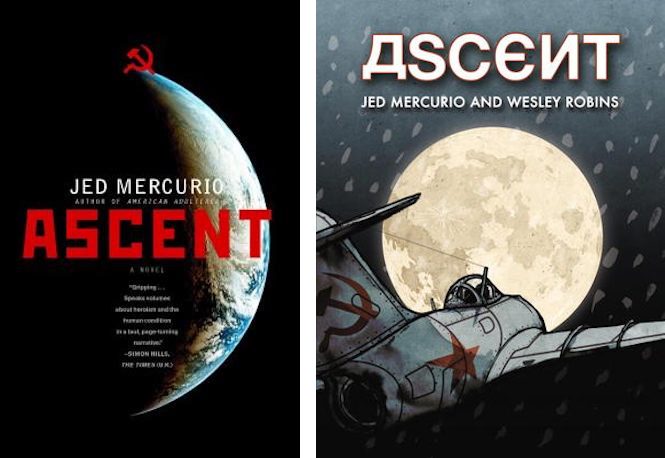
What if the Soviets put the first man on the Moon and we just never heard about it? This is the story of Yefgenii Yeremin, a Stalingrad orphan who becomes an ace pilot in the Korean war before being court-martialed and sent into exile. He’ll come back for a daring, if ill-conceived mission to get to the Moon before the Americans plant their flag. Ascent is both a novel and a graphic novel, the latter based on the former. I went for the graphic novel. The aerial scenes are particularly vivid. The art by Robins is gorgeous and haunting, the mood expertly set with sharp lines and an exquisitely bleak palette. And bleak it is, Yefgenii’s life is tragic, from his time at the orphanage to his final mission. I’m not always a fan of graphic novels but I absolutely adored this book.
Buy the Book


Until the Last of Me
Originally published in January 2021
Sylvain Neuvel dropped out of high school at age 15. Along the way, he has been a journalist, worked in soil decontamination, sold ice cream in California, and taught linguistics in India. He’s also a certified translator, though he wishes he were an astronaut. He writes about aliens and giant robots as a blatant excuse to build action figures (for his son, of course).










